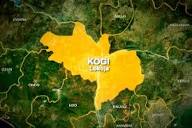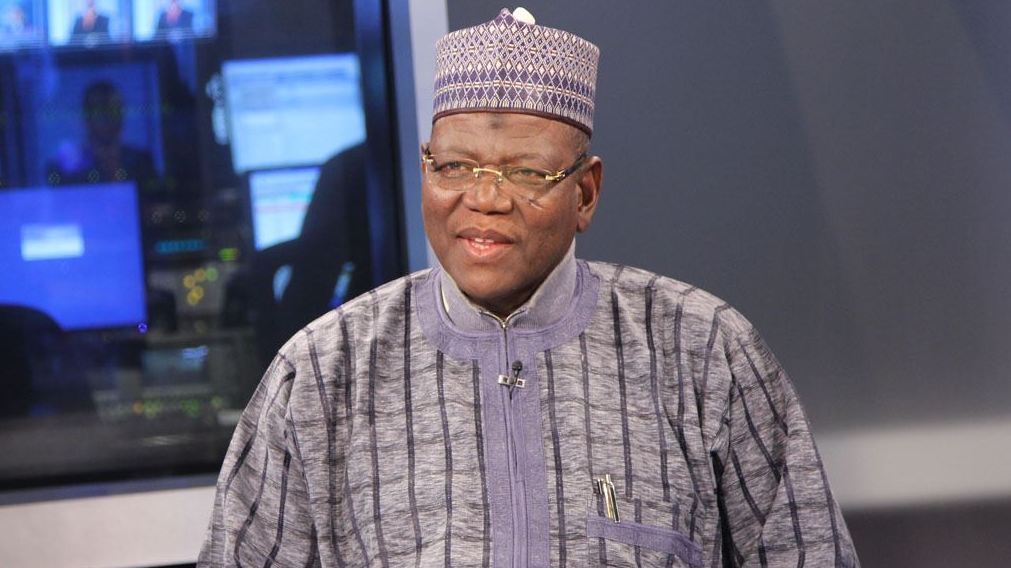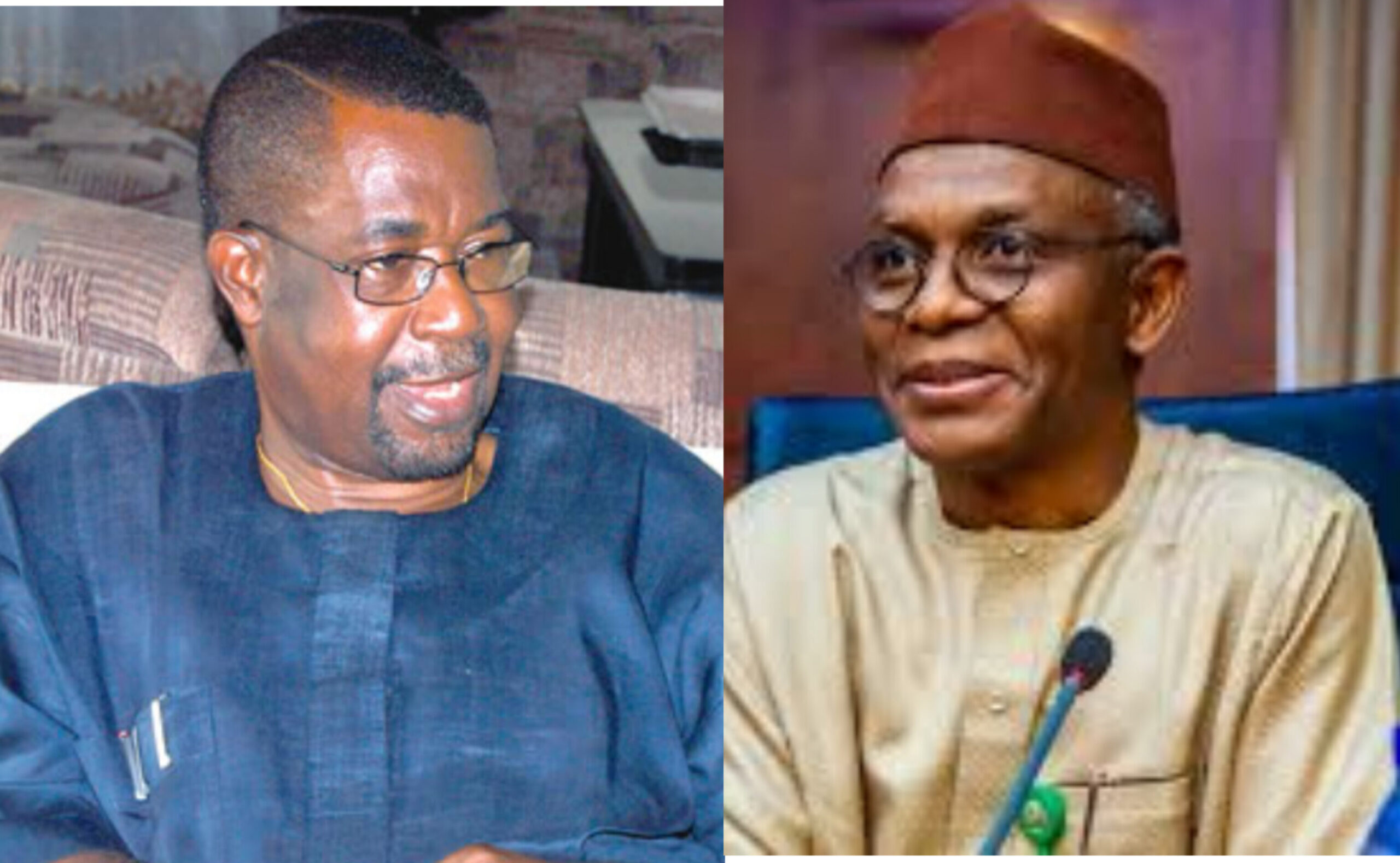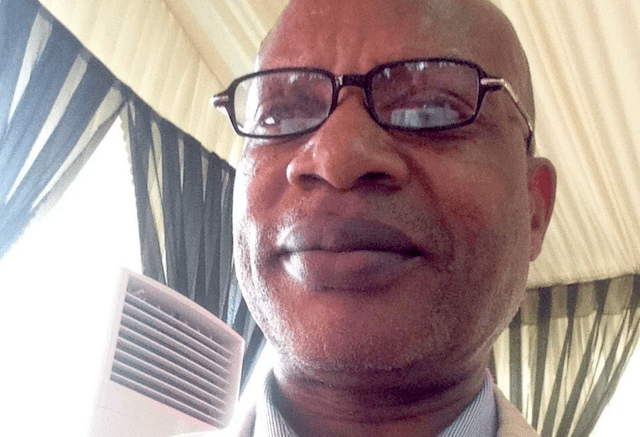By Tunde Olusunle
Select leaders and sociocultural groupings from the Okun country in Kogi State have once again, commenced fervid advocacy in the continuing quest for the governorship slot of the multicultural middle belt state. The state is host to the intersection of two of Nigeria’s largest rivers, the Niger and the Benue, which can be gleaned from ample elevations in the state capital, Lokoja and its environs. The Okun quest has become a regular refrain, since the emplacement of the state on August 27, 1991, by the administration of Nigeria’s erstwhile military President, Ibrahim Badamasi Babangida. For the purposes of elucidation, the Okun nationality comprises of the Okun-Yoruba speaking peoples of six out of seven local government areas, (LGAs), in Kogi West senatorial zone in Kogi State. Okun people are to be found in: Yagba East, Yagba West, Mopamuro, Ijumu, Kabba-Bunu, and the Oworo district in Lokoja LGA. Okunland is the fountain of several revered scholars, technocrats, bureaucrats, businessmen, military top brass, legal luminaries, among several other specialists.
It has been postulated that Okunland alone, has the highest percentage per square metre of professors in Nigeria, over and above the numbers posted by any other state within similar geophysical boundaries. Five hundred and fifty, (550), professors have been documented thus far from the area, while other Okun intellectuals are regularly joining the topmost rungs of academic attainments. The distribution of doctorate degrees is almost per household. There are two in my family for instance, while three are in the mint. Over a dozen legal luminaries of the rank of Senior Advocate of Nigeria, (SAN) are identifiable from the same catchment. Okunland is home to Africa’s largest cement plant, the Dangote Obajana Cement Complex, in Lokoja LGA. A second such industry being driven by Mangal Nigeria Ltd, is getting off the ground in Ijumu LGA.

The population of Okun people is approximately 800,000. This indeed is bigger than the numerical size of some countries in the world. Guyana, Western Sahara, Barbados, Malta, Macau, Sao Tome and Principe, among others, are indeed by size and population, smaller than contemporary Okunland. The preceding attributes of the sub-nationality, attest to the quantum and quality of the human and mineral resource base of Okunland. Despite these mouthwatering attractions and endowments of Okunland, however, it has been regularly and deliberately undermined, even spited, in the quest for the Number One office in the state, over time. No Okun person has been substantive chief executive of Kogi State.
Ahead of the off-season gubernatorial election in the state which is scheduled for the last quarter of 2023, agitations have begun from various ethnicities and senatorial zones, for the top job. Hitherto, the predominantly Igala speaking Kogi East, had exercised virtual monopoly of the office. Beginning from the pioneer civilian administration of Abubakar Audu between January 2, 1992 to November 1993, Kogi East has maintained a stranglehold on the office. With the dawn of democratic governance in 1999, Audu, a seasoned bank executive who flew the flag of the now defunct All Nigeria Peoples Party, (ANPP), returned to Lugard House.
Government House, Lokoja is so called because it was christened after the British Governor-General of Nigeria, Frederick Lugard, who once lived in the town. Lugard reportedly oversaw the amalgamation of the northern and southern Nigerian protectorates, into what stands as Nigeria today. He was also pioneer Governor-General of the new creation. In a very rare appearance of an Okun personality on the gubernatorial ballot in Kogi State, Stephen Olorunfemi, a successful architect and businessman, of the Peoples’ Democratic Party, (PDP), sparred with Audu in the 1999 polls.
Audu, however, lost his reelection bid in 2003, to Ibrahim Idris, who is also from Igalaland. Idris was to savour a two-term ticket which kept him in office for eight years. Indeed, he stayed in office a few months beyond the eight years because his reelection in 2007 was challenged in court by Audu his serial co-competitor. A rerun was subsequently ordered by the Independent National Electoral Commission, (INEC), about six months into Idris’ second term. Idris vacated office for a few months, to allow for the conduct of a fresh election which he won. During the interregnum, Clarence Olafemi, Speaker of the Kogi State House of Assembly, (KSHA), stood in as Acting Governor. Idris won the election and returned to office for a fresh run of four years.
Preparatory to the completion of Idris’ second term, the ruling PDP in 2011, conducted a gubernatorial primary to elect a flagbearer. It has been advanced that 2011 remained the best chance of Okunland to produce a governor, a brilliant and competent one at that. Okun achievers like: Bayo Ojo, SAN, CON, (former attorney-general and justice minister); Olusola Akanmode, (former chief of staff to the Vice President) and Clarence Olafemi, erstwhile Speaker of KSHA, all contested the primary. Idris’ longserving finance commissioner, Biodun Ojo; telecommunications businessman, Dehinde Abolarin, and former military officer, Bello Fadile, also threw their hats in the ring.
While Okun contestants shredded the delegates’ votes which they should have harnessed into a single pot, it was easy for Idris in furtherance of the Igala agenda, to settle for Jibrin Isah, a bank executive. Even when the primary was cancelled and a rerun ordered by INEC, Idris who had fallen out with Isah, installed yet another kinsman and favourite, Idris Wada, an aviator, consistent with Nigeria’s nepotistic democratic model. Wada led the state from January 2012 to January 2016. The late Abubakar Audu who ran against Wada on the platform of the All Progressives Congress, (APC), was coasting to victory during the October 2015 governorship election, when he died in very mysterious circumstances.
Instructively, there was an attempt in the aftermath of the 2015 general elections, to forge rapprochement between Kogi West and Kogi Central, for the mutual benefit of both zones. The results of the presidential election for that year, showed that the votes from both zones, far outweighed the tally from Kogi East. The West and Central therefore reignited their age-old political homogeneity, which had both zones together in the former Kwara State, before the 1991 states creation exercise. Both zones believed that if they stuck together and worked as a monolithic bloc, they could neutralise Kogi East. Former health minister, Eyitayo Lambo, (emeritus professor), was one of the prime movers of the initiative.
In a curious manifestation of novel legal gymnastics, Yahaya Bello, an Ebira from Kogi Central who posted second place at the APC governorship primary which produced Audu, was assigned the votes garnered by Audu and returned as governor! The maverick afrobeat musician, Fela Anikulapo-Kuti would have described that as “government magic…where red is turned into blue!” There is as yet no such precedence in Nigeria’s staccato democratic experience, beginning from the first republic in the 1960s. Bello who has administered the state with legendary malevolence and cold-bloodedness since January 2016, appropriated to himself a second term in office beginning from January 2020, specifically by the barrel of the gun. Bello’s electoral ingenuity inspired the release of the hit “musical track and music video,” ta-ta-ta-ta-ta.
With the rapid onset of the completion of Bello’s second term, the political air in Kogi State is abuzz, expectedly. The space is dominated by discussions and postulations about where the governorship pendulum should swing, come January 2024. Between Audu, Idris and Wada, the Igala in Kogi East, grossed a minimum of 18 years at the helm in Lugard House. By the time Bello concludes his second term in office in 2024, the Ebira of Kogi Central, would have logged eight years in the same office. In a rational, free and fair political situation, Okunland should automatically and unanimously produce Bello’s successor.
Kogi is not the only state which is home to divergent cultures and ethnicities. Elsewhere, seamless rotation has been perfected to accord every segment of the various states a sense of belonging. Beginning in 1999 with an Urhobo governor in James Ibori, other ethnicities are taking their turns in Delta State. Emmanuel Uduaghan, (2007 to 2015) and Ifeanyi Okowa, (2015 to the present), have flown the flags of the Itsekiris and Aniomas respectively. Rotation has also been perfected in states like Cross River, where all three governors since 1999- Donald Duke, Liyel Imoke and the incumbent Ben Ayade- come from different senatorial zones in the state. The same obtains even in culturally homogenous entities like Enugu, Bayelsa, Anambra and so on.
Against the background of the serial marginalisation of Okunland from the political scheme in Kogi State, leaders from the area have on several occasions, canvassed the creation of an Okun State. The initiative is intended to accommodate Okun people in Kwara, Ekiti and Ondo states respectively, bound together by the same sociology, culture, tongues and worldview. Submissions to this effect have been made to the “2014 National Conference,” set up by former president, Goodluck Jonathan, and relevant committees of the national assembly. This explains the profundity of the pangs of pain, thus far endured by the Okun people and Kogi West in general, in the sustained dysfunctional political equation in Kogi State.
From feelers on the streets of Lokoja, all three senatorial zones are bracing up to challenge for Lugard House, even as INEC has fixed the gubernatorial primary around mid-2023. The Igala have felt like fish out of water these past seven years, relegated to the backup position of deputy governor, whereas they hitherto called the shots. The Ebira are flying a kite to the effect that they be allowed to serve an additional two terms of eight years, at the end of Bello’s regime. A mischievous billboard was recently erected on the streets of Lokoja with numerals asking for Ebiraland to run a seamless 16 years, to approximate Igalaland’s 18. In this calculus, no mention was made of Okunland which is expected to remain at “zero years” in the political scheme.
A number of press conferences have been addressed at the levels of the Okun Development Association, (ODA), drawing attention to the recurring relegation of Okunland in the Kogi geopolitical scheme. Another body under the umbrella of the ODA, Okun Development Initiative, (ODI) convened by Olusuyi Otitoju and Lekan Aiyenigba, on Saturday September 17, setup a lobby group to meet with and secure the buy-in of political figures across the various constituencies and zones of the state. The membership includes Sola Enikanolaye, (retired ambassador); Clarence Olafemi, (former acting governor); Mike Ikupolati and Kola Olorunleke, (both professors);
Oladimeji Adeoye and B.F. Ayeni, (both retired army generals), and Funmilayo Bodunde, (respected woman leader). Tunde Bello and Bamidele Suru, (both highly regarded attorneys), are also in the group. The aim is to deepen the imperative of prioritising the “Okun for Governor” agenda, in popular consciousness as we stride towards 2023/2024.
On Friday October 21, 2022, the Okun Think Tank, (OTT), the technocratic arm of ODA, held a meeting convened in Abuja, by its vice chairman, Julius Olakunle Oshanupin, a retired army general, on the same subject. Olu Obafemi, (distinguished professor and recipient of the Nigeria National Order of Merit, (NNOM)); Joash Amupitan, (SAN, professor and deputy vice-chancellor (administration) of the University of Jos) and Mike Kupolati, (also a professor, were in attendance. ODA president, Femi Mokikan, (a revered attorney); Babatunde Paul Fadumiyo, Akenson Rotimi and Olusegun Ijagbemi, (all retired ambassadors); Adekunle Obayemi, (retired air commodore); Dan Kunle, (reputable business consultant); J O Yusuf (political leader) and Salman Idris, (seasoned architect), honoured the invite.
The consensus at the meeting was that power is never served on a platter, but wrestled from the grips of power mongers. It was proposed that a team of political strategists be purposely engaged, if we do not have people with such proficiencies in the ranks of Okun people. Many presidents across the globe, engaged multitasking strategists to help plot and plan their pathways to power. Such professionals should draw up for Okunland, a blueprint about how to best pullout the chestnut from the fireplace, how to confront, clobber and carpet the lion in its own den. The challenge for the acquisition of power from the status quo in Kogi State, it was agreed, is a combination of the genteel and the robust. In all of these, Okunland will work with its people in the Lokoja and Kotonkarfe LGAs with whom it shares the Kogi West senatorial zone, and believers in fairness, equity and justice, across the state and beyond.
Irrespective of party affiliation, Okun people must gird their loins for the proper plunge and push for Lugard House, Lokoja, if they must secure the ultimate trophy. Prejudices, animosities, jealousies and presumptuousness must be exorcised even from the onset. This is not the time for chicanery, debauchery, subterfuge and brinkmanship in any form. Distractions and diversions must be dispensed with, even from the starting blocks of the project. Okun people must approach this with a “never say die,” “forward ever” resolve, until the the tape is finally breasted.
Tunde Olusunle, PhD, poet, journalist, scholar and author, is a Member of the Nigerian Guild of Editors, (NGE).




